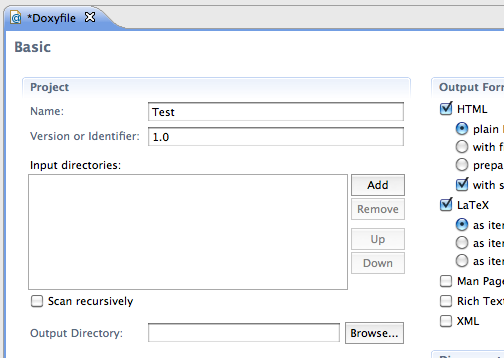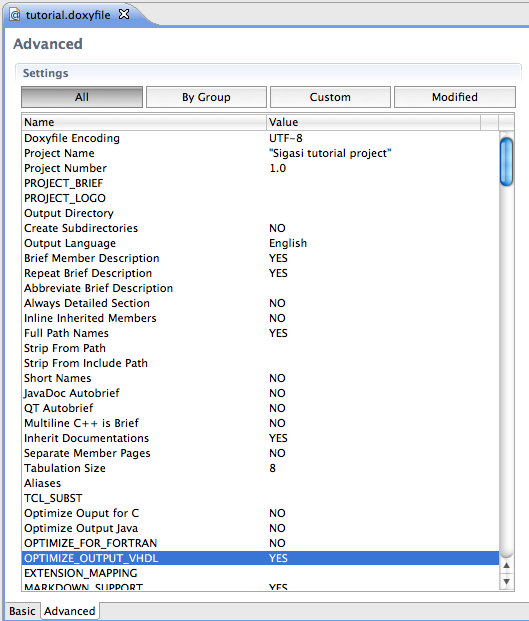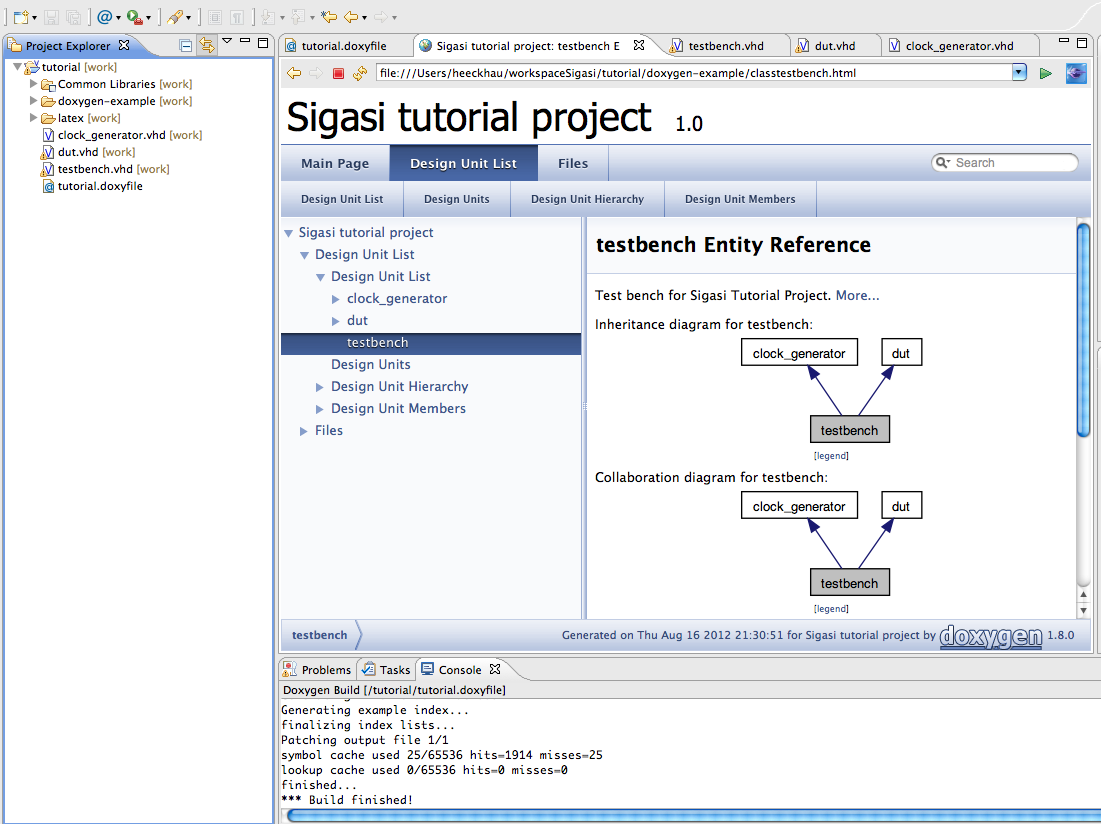I don’t know any hardware developer who likes to document her design, but as far as I know everybody has to write documentation. Writing documentation is cumbersome. It often happens near then end of the project when stress and workload are already high. It easily gets out of sync with the design…
Doxygen tries to make the documentation process easier. It extracts information from your VHDL source files to generate documentation. If you annotate your source files with special comments , this documentation can give a nice extra view on your code. A large advantage is that there is only a single source for both your design and your documentation. While this gives no guarantee for the design staying in sync with the documentation, it certainly makes it easier.
Although I am personally not that fond of Doxygen (but that is for another blog post), it is the only usable VHDL documentation system I have encountered so far.
Sigasi/Eclipse offers an easy way to get started and work with Doxygen. As a small example I generated Doxygen documentation for the tutorial project that is shipped with Sigasi.
Install Doxygen and the Doxygen Eclipse plugin
Before you can use the Doxygen plugin. You need to install Doxygen itself on your system.
Doxygen
To install Doxygen on your system, visit The Doxygen website and download the distribution for your system or install it with your favorite package manager. You should also install dot if you want nice looking graphs.
Doxygen Eclipse plugin
Eclox is a simple Doxygen plug-in for Eclipse. It provides a graphical user interface to configure and run Doxygen. Eclox is available under the GNU General Public Licence (GPL).
To install the doxygen plugin:
- Click Help > Install New Software…
- Enter https://anb0s.github.io/eclox in the Work with field
- Select Eclox
- Finish and Restart
Configuring Doxygen for your VHDL project
Before you can generate documentation with Doxygen, you need to create a Doxygen configuration file first. Once this file is properly configured, you are ready to generate nicely rendered documentation of your code.
Create a Doxygen configuration file
Once the plugin is installed, Sigasi has an extra @-button in the
toolbar. If this button does not show up, click Window > Reset perspective….

Click this button to generate a Doxygen configuration file. You can
choose any filename you like, but the convention is to use Doxyfile.
If you use this name, Sigasi will open this file with a rich editor.
Although this editor is mainly targeted to C developers, it is also
useful for VHDL designers.

The basic settings, such as the project name,… you can configure in the basic tab. But most VHDL settings are only available in the advanced tab.

I made following changes to the default settings:
PROJECT_NAME = "Eclipse tutorial project"to configure the project namePROJECT_NUMBER = 1.0OPTIMIZE_OUTPUT_VHDL = YESConfigure Doxygen to tailor its output for VHDLEXTRACT_ALL = YESForce Doxygen to create documentation for all your design files, even if the source files contain no special doxygen comments.
Once you get to know Doxygen, it is easier to configure these settings
in a regular text editor. You can do this by right-clicking the
Doxyfile and selecting Open with > Text Editor.
Run doxygen
To run Doxygen, simply press the @-button again. The generated files are
written to the doxygen-example folder by default. Double-click the
index.html file to see the results. The result will not have a lot of
content in it. To add more content, you need to add special doxygen
comments.
Add doxygen comments to your design files
To really document your source with Doxygen you need to add special
code comments .
Instead of regular VHDL comments (-- ...), you have to use
doxygen VHDL comments (--! ...). You have to place your
comments in front of the item that you want to document. The only
exceptions are ports and generics. You can document these with a
one-line description on the same line.
You can download the VHDL source of an example Sigasi here. For more details consult the Doxygen manual .
Useful links
- Doxygen
- Doxygen manual
- Eclox : a simple doxygen frontend plug-in for eclipse
- Update site: https://anb0s.github.io/eclox
- VHDL sources for the example
See also
- Documentation Generation in CI with Sigasi CLI (knowledge)
- Documentation features for large designs in Sigasi Visual HDL (knowledge)
- The benefits of early detection (screencast)
- Customizing documentation from Sigasi Visual HDL: easier than you think (knowledge)
- Customize documentation from Sigasi Visual HDL using the Document Object Model (knowledge)
